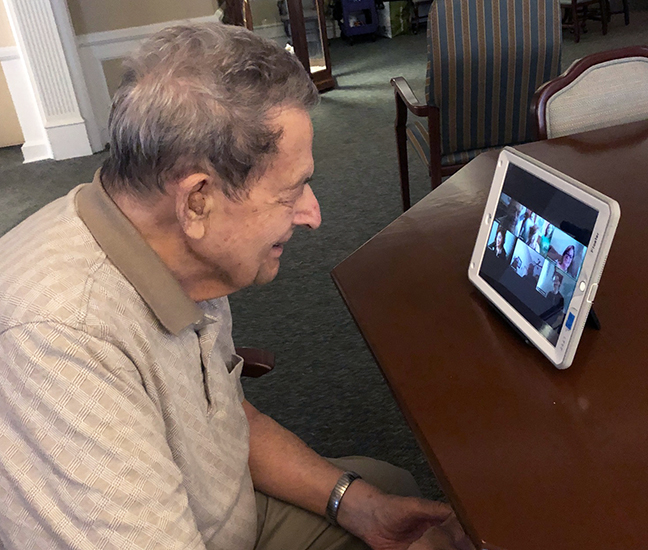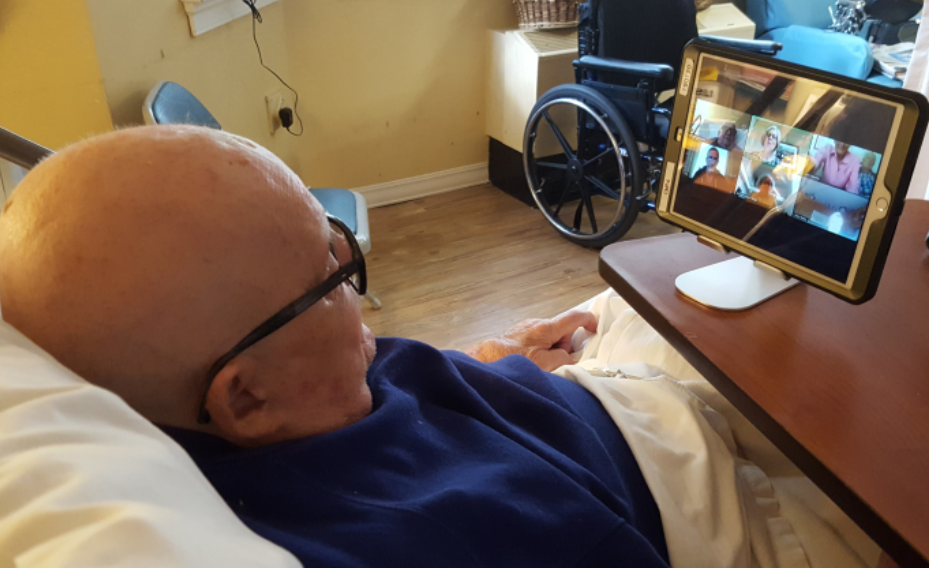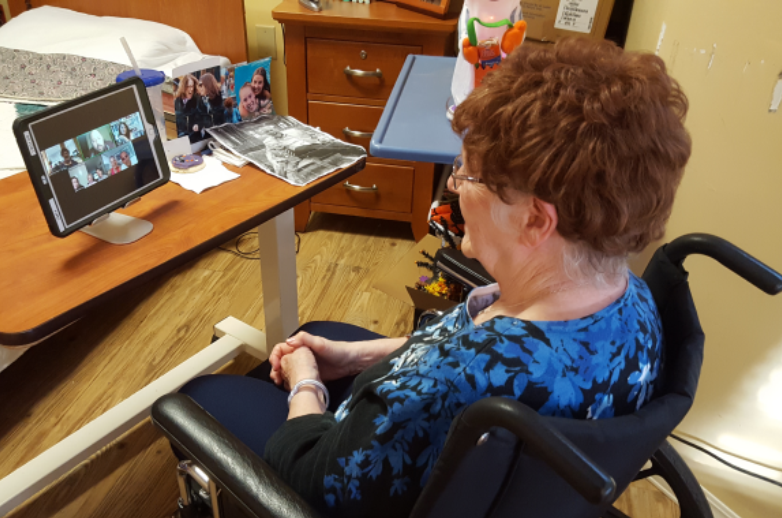Virtual visits go to next level with new technology
The glowing emails from family members on Homeland Center’s virtual visits include thumbs-up and heart emojis:
 “We appreciate all your efforts and everyone at Homeland to keep us connected during this difficult time!”
“We appreciate all your efforts and everyone at Homeland to keep us connected during this difficult time!”
“Our family really appreciates everything Homeland is doing to keep us connected to our mom.”
“We all want to be in the same room as him and hug him- as I’m sure everyone who has a loved one at Homeland does. So happy we at least have Zoom for now.”
“He really enjoys these Zoom meetings, and it is so very important to his feeling connected to us! Thank you!!!”
Since Homeland restricted visitors in all but end-of-life situations to help contain the spread of COVID-19, a dedicated team has worked hard to connect residents to loved ones via Zoom, Facetime, Skype and traditional phonecalls.
The visits bring residents up-to-date on family news or in virtual attendance to grandchildren’s weddings.
 Resident Bob Hostetter and longtime Rotary Club of Harrisburg member joins the club’s weekly meetings via Zoom. On Thursdays, he visits family members and their dog and on Fridays, he discusses current affairs with old friends.
Resident Bob Hostetter and longtime Rotary Club of Harrisburg member joins the club’s weekly meetings via Zoom. On Thursdays, he visits family members and their dog and on Fridays, he discusses current affairs with old friends.
“We meet every Friday, and we talk about world events and local events, politics, Harrisburg,” says Bob. “We’re still connected. We all enjoy that.”
Bob also celebrated his birthday as about 40 friends cycled in and out of a Zoom call, making virtual room for each other to extend best wishes.
“We continue to help residents participate in the life events of their families,” says Alice Kirchner, who coordinates the technology involved and supports the team of activities, social work, and development staff facilitating the calls.
Staff carefully cleans the devices between uses, Alice says. Between March and the end of 2020, Homeland expects to facilitate at least 850 Zoom calls. Total virtual contacts, including Facetime and Skype, will probably exceed well over 1,200, she says.
Recently, state-of-the-art technology and adaptable accessories purchased through a federal grant make the experience even more powerful.
In August, Homeland received a $3,000 grant from the federal U.S. Centers for Medicare & Medicaid for “adaptive communicative technologies” – shared devices and accessories allowing nursing home residents to communicate with the outside world while COVID-19 restrictions are in place.
With the grant, Homeland bought six new iPads, adding current technology to a fleet of 14 devices. Homeland also bought gooseneck stands that can be attached to nightstands or wheelchairs, allowing the devices to be positioned at angles, allowing residents to see their loved ones more easily and vice versa.
“We tried to leverage this additional source of dollars to better address resident needs and make it a better experience,” says Kirchner.
 Homeland’s virtual visit team is trained to use the technology, help start the virtual visits, and troubleshoot any problems. They adjust the lights and turn down televisions to create optimal conditions for the calls.
Homeland’s virtual visit team is trained to use the technology, help start the virtual visits, and troubleshoot any problems. They adjust the lights and turn down televisions to create optimal conditions for the calls.
“They are so genuine and caring and conscientious,” she says of Homeland’s ‘visit’ team.
The calls are scheduled through December and are so successful that they will probably continue after restrictions lift. Naturally, families look forward to in-person visits, but that is not viable for some.
Alice says the smiles on the faces of family members and residents make it all worthwhile.
Family members deserve a lot of credit as well. “Very few calls didn’t occur as scheduled,” she says. “This is a commitment that families are willing and able to make.’’


